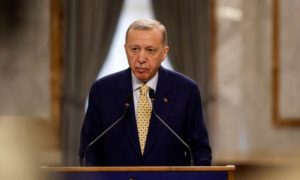Speaking to Tunisie Numérique, Economist Dr. Rida Al-Shakandali examined the government’s inclination to borrow from the Central Bank to fund the state treasury. This approach has been suggested by several sources but has not yet been officially confirmed.
He noted that numerous specialists are concerned about the state’s possible borrowing from the Central Bank due to the risk of financial inflation. Such inflation could arise if the borrowed funds are employed for consumer expenses like salary financing and subsidies. Nevertheless, if the loan is utilized for financing development expenditures, it would likely not pose a problem.
He clarified that development expenditures can stimulate private investment, foster economic growth, and assist create supplementary sources of income for Tunisians, which in turn could contribute to reducing inflation.
Continuing his analysis of the possibility of state borrowing from the Central Bank, he remarked that certain conditions must be met. Foremost among these is the determination of the loan amount by both the government and the lending entity. This requirement implies the need for two key changes:
- The change is first done at the level of the basic law of the central bank, which includes confirming that there is no monetary inflation and must furthermore include providing economic growth, as when increasing the directorate interest rate, it must be taken into account by the central bank that this increase will be at the private investment account will result in a drop in economic growth, and thus this increase, which has reached 11 times since 2011, will stop.
- The second change must incorporate the basic law of the budget, especially the principle of non-allocation, as there must be a chapter binding the state to finance development expenditures only through this loan.
In the same vein, he cautioned that pumping money into the economy without raising wealth will necessarily result in financial inflation and a decrease in the level of private investment because an increase in the interest rate is necessarily a supplementary cost to the investor, and if investment falls, growth will decline and unemployment will increase without fail. It benefits the Tunisian people. To avoid all of this, the approach must be modified from an accounting approach to fill the financial gap in the state budget to an economic approach that makes the central bank an effective element in the economy.
What's happening in Tunisia?
Subscribe to our Youtube channel for updates.










































